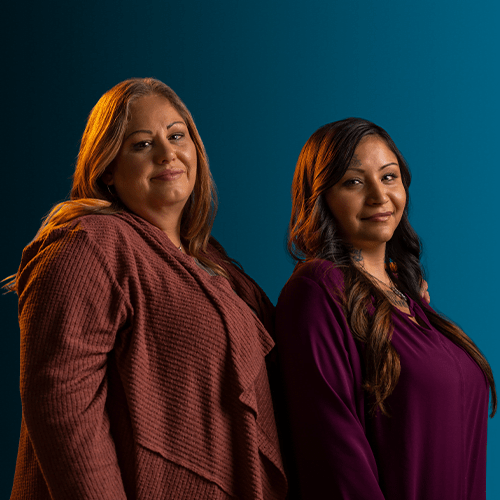
ANGELA & ANDREA | Sterling, CO & Eaton, CO
“You can always find professional resources if you don’t have anybody you can reach out to.”
Andrea works in the food industry, and her step-mother, Angela, works at a counseling center, connecting those struggling with people who are familiar with the recovery process. Both are in recovery.
Andrea’s substance use began at a time of grief and had been going on for several years. Her substance use made motherhood and custody of her two children difficult. Eventually, Andrea found out she was expecting her third child. The news sparked a desire for change, and she began her journey of recovery. Andrea stopped her substance use and worked long hours all while carrying her child. She explained how amazing it was to receive the support of her parents, her child’s father, and her step-mother, Angela.
When Angela came into Andrea’s life, they formed a strong connection. Even though Angela is 20 years older than Andrea, Angela explained that they could relate on many levels. They would have long conversations, and Angela being in recovery herself provided a base for their communication. Angela considers her openness to be one of the most important things she was able to provide.
Angela sends Andrea supportive gestures like inspirational books around the holidays. Andrea remarks how helpful it is to read some quotes of inspiration when she needs it.
Andrea’s approach to supporting someone in recovery is to remind them that there is a light at the end of the tunnel. Angela added the importance of connection and considers it to be something everyone needs forever.
Angela and Andrea continue to support each other. Andrea advises those struggling to always reach out to someone—having a partner or someone to talk to allows her to feel hope and talk about her emotions. She says you can always find professional resources if you don’t have anybody you can reach out to.